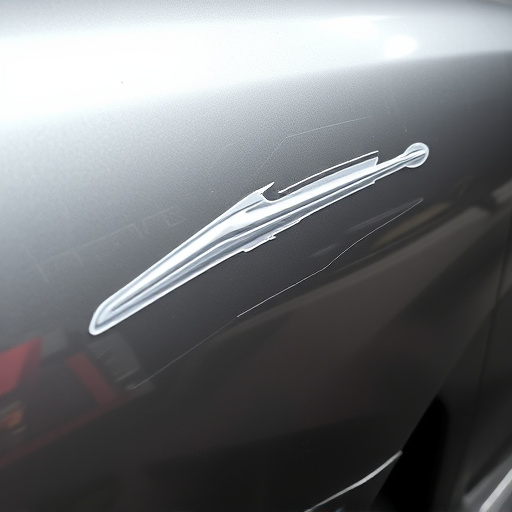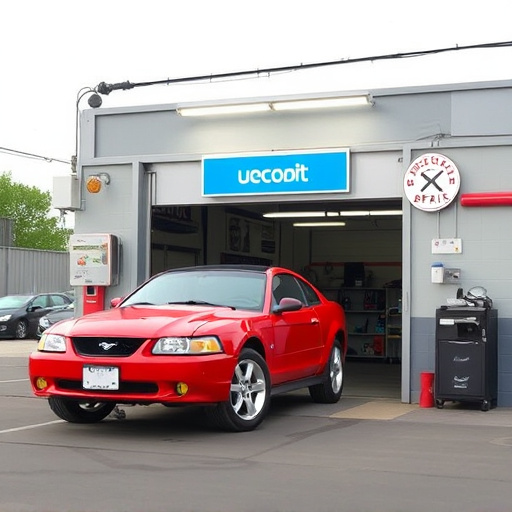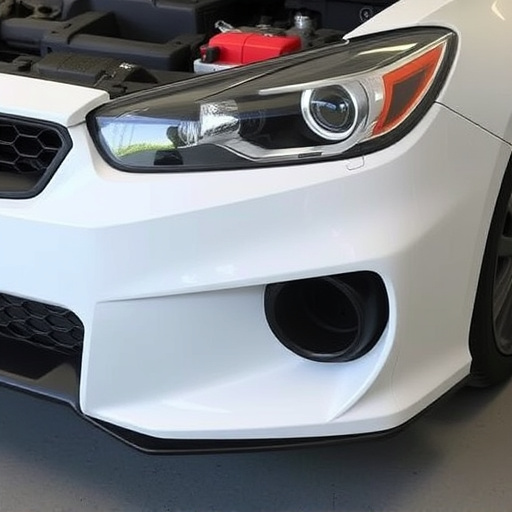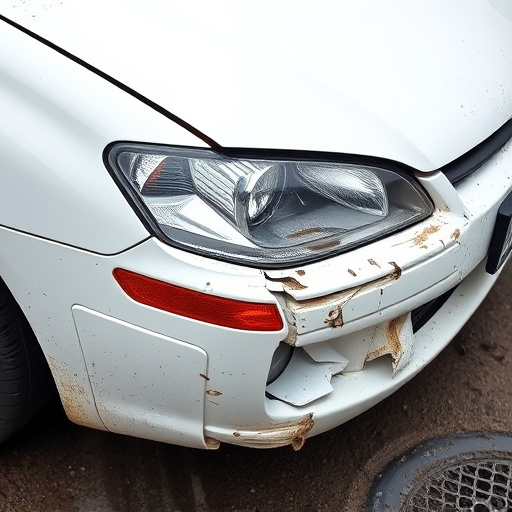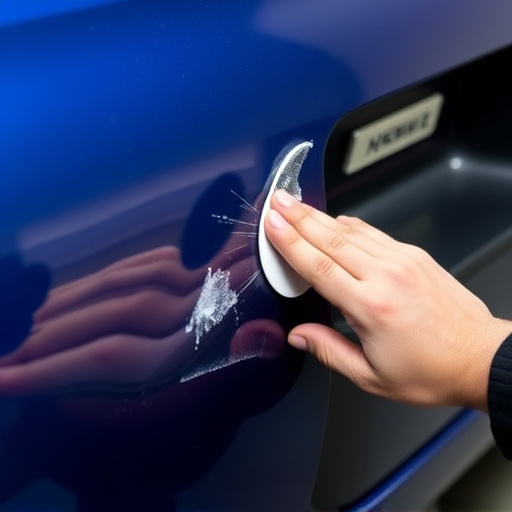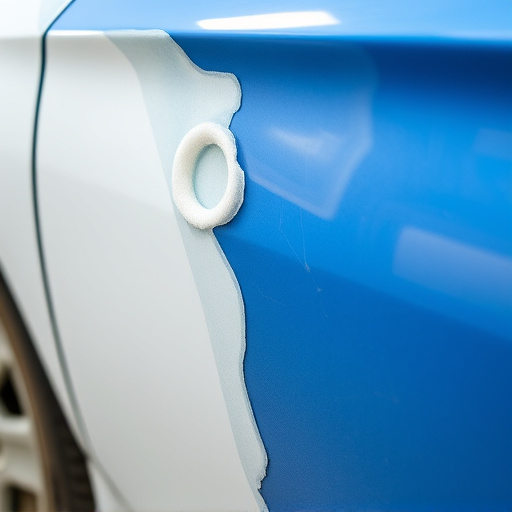A lifetime repair guarantee in automotive ensures free repairs for engine and structural issues during the guaranteed period. Exclusions include normal wear, negligence, accidents, and specific restoration processes. Consumers must understand terms and adhere to environmental standards, such as waste management and safe disposal of hazardous materials. This guarantee, combined with eco-friendly practices like auto glass repair recycling, boosts customer confidence and promotes sustainable auto repair services in the digital age.
In today’s market, consumers increasingly prioritize products that offer both durability and environmental responsibility. The Lifetime Repair Guarantee stands out as a revolutionary concept, promising hassle-free repairs for the lifespan of a product, regardless of manufacturing defects. This article delves into this comprehensive overview, exploring how it aligns with crucial environmental compliance standards. We’ll also examine strategies for integrating these guarantees with sustainable practices to ensure products remain functional and eco-friendly throughout their lifecycle.
- Understanding Lifetime Repair Guarantee: A Comprehensive Overview
- Environmental Compliance: Key Standards and Regulations
- Integrating Guarantees with Sustainable Practices for Longevity
Understanding Lifetime Repair Guarantee: A Comprehensive Overview
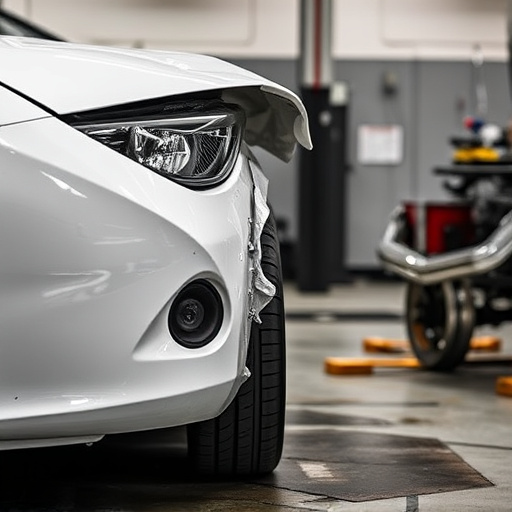
A lifetime repair guarantee is a commitment made by manufacturers or service providers to ensure the longevity and durability of their products. In the context of automotive industry, this means that if a vehicle or its components require repair or replacement within the guaranteed period, it will be done free of charge. The scope of such guarantees often includes various aspects like engine performance, structural integrity, and even tire services, demonstrating the comprehensive nature of these offers.
Understanding the terms and conditions is crucial for consumers availing this benefit. These guarantees typically exclude damage caused by normal wear and tear, negligence, or accidents. For instance, in the case of car damage repair, the guarantee may not cover incidents like collisions or improperly maintained vehicles. Consumers should also be aware that automotive restoration processes, which often involve intricate repairs, may have specific requirements and eligibility criteria to ensure environmental compliance standards are met throughout the lifetime of the vehicle.
Environmental Compliance: Key Standards and Regulations
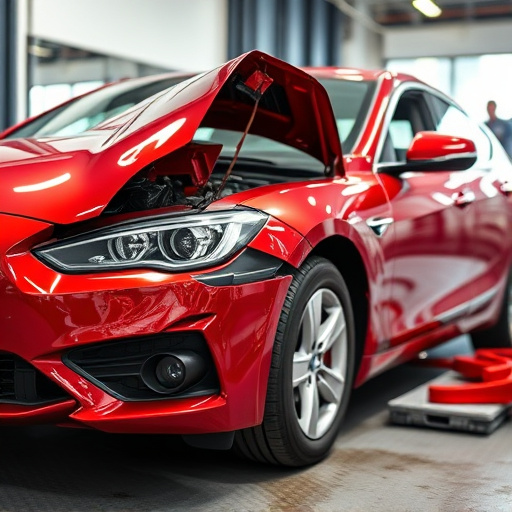
In the realm of auto body repair, environmental compliance standards play a pivotal role, ensuring that auto body shops operate sustainably and responsibly. Key regulations focus on waste management, emissions control, and the safe disposal of hazardous materials commonly found in vehicles, such as old batteries and fluids. These standards not only protect local ecosystems but also contribute to the longevity of our planet by minimizing the environmental impact of auto repair processes.
Auto glass repair, a critical component of overall auto body repair services, is subject to specific regulations regarding the recycling and disposal of shattered glass. Many regions mandate that auto body shops adhere to strict guidelines for managing broken glass, promoting recycling programs, and ensuring that toxic substances are handled and disposed of properly. A lifetime repair guarantee can further enhance customer trust in eco-conscious auto body shops, as it demonstrates a commitment not just to quality repairs but also to sustainable practices.
Integrating Guarantees with Sustainable Practices for Longevity
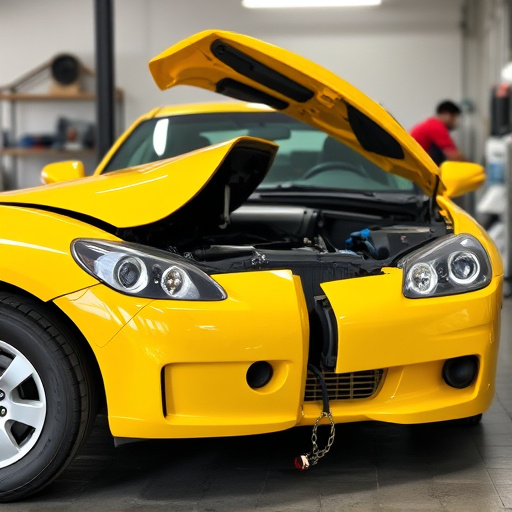
In today’s digital era, consumers are increasingly conscious of both product quality and environmental sustainability. Integrating a lifetime repair guarantee with sustainable practices is a game-changer for any industry, including automotive repair services. By offering comprehensive warranties that extend beyond traditional time frames, businesses signal their commitment to long-term customer satisfaction and eco-friendly operations. This strategy not only fosters trust but also encourages clients to prioritize regular maintenance, reducing the need for frequent, costly repairs or procedures like dent removal or frame straightening.
Sustainable practices play a pivotal role in enhancing the longevity of products and services. For auto repair shops, this translates into utilizing eco-friendly materials, employing energy-efficient equipment, and adhering to stringent environmental compliance standards. A lifetime repair guarantee further reinforces these efforts by incentivizing customers to maintain their vehicles properly, minimizing waste from unnecessary replacements, and promoting a circular economy. This holistic approach ensures that automotive repair services not only meet but exceed customer expectations while contributing positively to the environment.
The integration of a robust lifetime repair guarantee with strict environmental compliance standards is not just a best practice, but an essential strategy for businesses aiming for long-term sustainability. By embracing these principles, companies can reduce waste, minimize their ecological footprint, and foster consumer loyalty through transparent, responsible product lifecycle management. Adopting such practices ensures products remain in use for extended periods, contributing to a greener future while meeting the evolving demands of environmentally conscious consumers.





